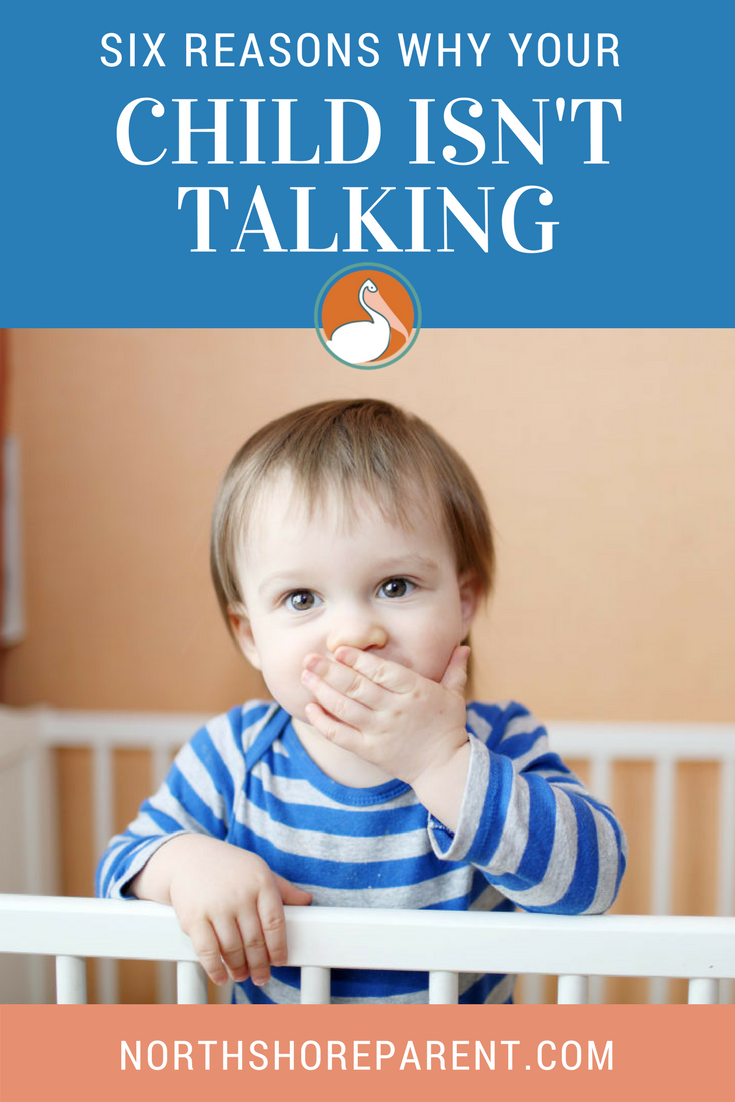
Parents can be confused and frustrated when their child is not talking. The child may have no known childhood developmental disorders or medical diagnosis, yet for some reason the words won’t come or the child is very difficult to understand.
As pediatric speech-language pathologists (SLPs), we encounter these children daily. Here are 6 of the most common reasons we have found that your child may not be talking (well).
1. Your child may just be on the later end of “normal” in developing speech or certain sounds. Some children may wait to start saying their first words until a little past one year old, but are excellent non-verbal communicators, using gestures and facial expressions to convey what they want to say. They also appear to understand a great deal of what their parents say.
2. His brain may not be communicating well with the muscles of his mouth. This disorder is related to praxis–the ability to plan muscle movements. The severity level can range from mild to severe/profound. Some children may have trouble sequencing syllables in a long word, while others may labor to produce the simplest of sounds or syllables.
3. She may have muscle weakness due to mouth-breathing, lack of oxygen, or other mild birth incident. When muscle weakness is present, you may also notice oral structures that are large or “floppy”, such as a tongue that appears large and hangs forward or cheeks that are large and tend to sag. This may result in speech that sounds slurred due to the oral musculature having difficulty making precise movements.
4. He may not have developed the underlying communication skills necessary before meaningful verbal communication can begin. Parents and children begin communicating with each other long before the child ever speaks by sharing knowing looks and smiles, reaching for each other, looking at the same things and smiling, and imitating each other. Toddlers use gestures to point and get your attention or get their needs met. They show a variety of emotions and interact with relative ease. If your child is having difficulty with some of these underlying skills, he or she may have trouble learning language or using language in a meaningful way.
5. He may have had some developmental interference, such as intermittent hearing loss due to chronic ear infections, middle ear fluid, or other illnesses.
6. She may have a specific language impairment. This may occur when other areas, such as nonverbal communication, are developing well. Sound production may not be an issue, but spoken language may take a while to develop. The language that does develop could be lacking in verbs and/or have poor grammatical structure. Because academic success is often highly dependent on language skills, these children are at risk for having learning problems.
A speech-language evaluation can give you insight into your child’s specific challenges and needs. If you have a gut feeling that something is not right, do not wait. Pediatric Speech-Language Pathologists are equipped to help you determine why your child may be having difficulties. An evaluation will either ease your mind, or help get you started on the path to helping your child.
Marsha LeGoullon, M.A., CCC-SLP
Speech-Language Pathologist
Co-owner of Pediatric Therapy and Learning Center, LLC and
Pediatric Therapy and Learning Center of the Northshore, LLC

Guest
Latest posts by Guest (see all)
- Five Reasons Roller Derby is Great for Kids - July 26, 2022
- Air Force None: The Time My Child Refused to Fly - June 22, 2022
- Why is Such a Bad Idea Coming From Mandeville? {One Mom’s Opinion} - May 14, 2022


My son is nine years he says a word and never says it again. How can i be assisted.
He can’t tell anything he needs